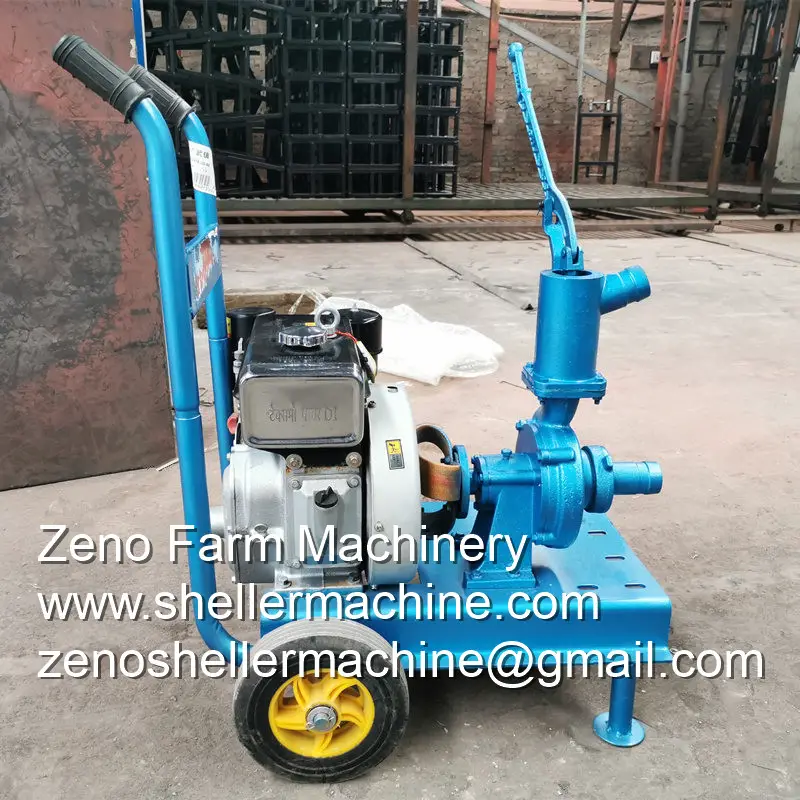When purchasing a center pivot irrigation machine, you likely have expectations for the lifespan of your equipment. Some center pivot pipelines are still dependable after 25 to 30 years of use, which would be ideal. However, some pipelines show leaks after only 7 to 10 years. So why do some farmers have better luck with center pivots than others?
The life expectancy of center pivot pipelines directly relates to the quality of water used to irrigate fields, crop production inputs such as fertilizers and pesticides applied through the equipment, and the hours of pivot operation.
Water pH
Water pH affects the quality of water running through the pipeline. If the pH level is too low, it can cause damage to the pipeline coating. Water analysts found that chloride and sulfate levels, as well as calcium, magnesium, and bicarbonate levels, can impact the water quality and therefore impact the lifespan of a pipeline. With lower quality water, pipelines tend to corrode and break down more easily. Leaks are commonly found around couplers and non-galvanized or protected parts like water pump.

Crop Production Products
Center pivots can be used to apply crop production inputs such as fertilizers, pesticides, and soil/water remediation products. Certain products can cause damage to galvanized steel and can shorten the life expectancy of the pipeline. All materials running through your water need to be considered when choosing pipeline materials.
Hours of Operation
You should also consider the hours of center pivot operation when looking at the impact of water quality on the pipeline. If you estimate the life of the pipeline to be about 20,000 hours, you can reasonably expect a 20-plus-year life from your center pivot pipeline if you are running your machine around 1,000 hours per year (supplemental or single crop – medium water use). However, if you are irrigating a single crop with high water use, you will reach 20,000 hours in about ten years.
Pipeline Coating
So how can you accurately predict the lifespan of your pipelines? Remember to take these three factors into account and then select the correct pipeline coating.
The coating of the pipeline can dictate how long a center pivot will last when applying certain water or fertilizers. To determine the correct pipeline coating, the pivot designer will take your input of expected hours and years combined with the water quality and fertilizers and pesticides used, and enter this into the model. Recommended guidelines are then generated for the best type of pipeline.
There are several different coating options to choose from, including aluminum, weathering steel, stainless steel, galvanized steel, and inert liners. Each has a different life expectancy depending on different water qualities.
Aluminum Pipelines
For corrosion resistance, aluminum relies on a thin layer of aluminum oxide on the surface of the pipe. Unprotected, aluminum is highly reactive and will corrode very quickly. It is sensitive to chloride levels above 40 ppm, sulfate levels above 50 ppm, and water pH greater than 8.2 or lower than 5.0. Aluminum is also susceptible to wind, and is weaker and less durable than steel. In the graph below you can see the differences in machine life expectancies based on the type of pipeline coating and chloride and sulfate concentrations used.
Weathering Steel
Weathering steel protects itself with a tightly adhering layer of rust on the outside of the pipe that prevents further corrosion. This type of coating is sensitive to chloride levels above 40 ppm, sulfate levels above 50 ppm, and water pH greater than 8.2 or lower than 5.0.
Stainless Steel
This type of pipeline coating is sensitive to chloride levels above 40 ppm, sulfate levels above 100 ppm, and water pH greater than 11.0 or lower than 4.0. Stainless steel coatings are not recommended for use with soft water and it can be incompatible with certain farm chemicals and soil remediation products. It is also very expensive compared with the price of other coatings.
0





